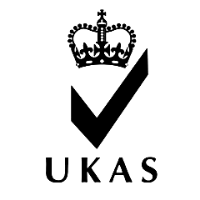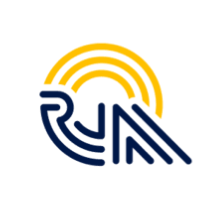What is ISO/IEC 17029 Accreditation?
ISO/IEC 17029 is a standard that provides requirements for the accreditation of bodies performing validation or verification of greenhouse gas (GHG) assertions. This standard is specifically designed for organizations involved in assessing and verifying activities related to the measurement and reporting of greenhouse gas emissions and removals. The goal is to ensure the competence, consistency, and reliability of such verification processes.
Here are some key points related to ISO/IEC 17029 accreditation:
Scope:
ISO/IEC 17029 focuses on the accreditation of bodies that carry out validation or verification of greenhouse gas assertions. This includes organizations involved in assessing the accuracy and reliability of reported GHG data.Requirements:
The standard outlines the requirements that accrediting bodies must meet to ensure the credibility and competence of organizations seeking accreditation for GHG validation or verification. This includes criteria related to the competence of personnel, impartiality, confidentiality, and the effectiveness of the verification process.
Competence of Personnel:
Accredited bodies must demonstrate the competence of their personnel involved in GHG validation or verification. This involves having qualified and experienced individuals with the necessary skills and knowledge to perform accurate assessments.
Impartiality:
ISO/IEC 17029 places a strong emphasis on the need for accrediting bodies to maintain impartiality throughout the accreditation process. This ensures that assessments are fair and unbiased.
Confidentiality:
The standard requires accredited bodies to establish and maintain procedures to protect the confidentiality of information obtained during the validation or verification process.
Effectiveness of the Verification Process:
ISO/IEC 17029 ensures that accredited bodies have effective processes in place for verifying greenhouse gas assertions. This involves clear methodologies, documentation, and reporting to ensure the reliability of the validation or verification outcomes.
International Recognition:
ISO/IEC 17029 accreditation enhances the international recognition of the organizations performing validation or verification of greenhouse gas assertions. This is important for promoting consistency and reliability in the global effort to address climate change.
Organizations
seeking ISO/IEC 17029 accreditation demonstrate their commitment to quality and reliability in the field of greenhouse gas measurement and reporting, contributing to the global efforts to combat climate change.Benefits of ISO/IEC 17029 Accreditation
Validation or Verification Bodies
If ISO 17029 relates to the accreditation of organizations engaged in the validation or verification of greenhouse gas (GHG) assertions, these bodies may be eligible.
Credibility and Trustworthiness
ISO accreditation is often recognized globally as a mark of credibility and reliability. Organizations with ISO 17029 Accreditation can instill trust in their stakeholders, including clients, customers, and partners.
International Recognition
ISO standards are internationally recognized, providing a common language and framework for organizations across borders. ISO 17029 Accreditation could enhance the international recognition of an organization's competence in the specific area it covers.
Quality Assurance
ISO standards are designed to ensure that organizations adhere to high-quality processes and practices. Accreditation to ISO 17029 can be seen as a commitment to maintaining and improving the quality of processes related to validation or verification activities.
Competitive Advantage
Organizations with ISO 17029 Accreditation may gain a competitive edge in the market. Many clients and customers prefer to work with accredited entities as it signifies a commitment to meeting established standards and delivering quality services.
Operational Efficiency
ISO standards often emphasize the need for well-defined processes and continuous improvement. Achieving and maintaining ISO 17029 Accreditation can lead to improved operational efficiency, reducing errors and enhancing overall performance.
Risk Management
ISO standards typically involve a structured approach to risk management. Accreditation to ISO 17029 may help organizations identify and mitigate risks associated with validation or verification processes, contributing to overall risk management strategies.
Who can be Accredited ISO/IEC 17029 Accreditation?
Validation or Verification Bodies
If ISO 17029 relates to the accreditation of organizations engaged in the validation or verification of greenhouse gas (GHG) assertions, these bodies may be eligible.
Emission Monitoring Organizations
Entities involved in monitoring and reporting greenhouse gas emissions on behalf of industries or facilities may be eligible for accreditation under ISO 17029 if it is related to this field.
Regulatory Agencies
Regulatory agencies responsible for overseeing and enforcing environmental standards might seek ISO 17029 Accreditation to enhance their credibility and effectiveness in managing GHG emissions data.
Quality Assurance and Testing Laboratories
If ISO 17029 pertains to the accreditation of laboratories involved in testing and validating data related to GHG emissions, quality assurance labs might be eligible.
Carbon Offset Project Developers
Organizations involved in developing and managing carbon offset projects that require validation or verification of emission reduction activities may seek ISO 17029 Accreditation.
Government Agencies
Certain government agencies responsible for overseeing environmental regulations and standards might pursue ISO 17029 Accreditation to demonstrate their commitment to quality and competence in GHG validation or verification processes.
Certification Bodies
Entities responsible for certifying organizations' compliance with environmental standards, especially those related to GHG emissions, may be eligible for ISO 17029 Accreditation.
Who can issue this Accreditation?

UKAS

GAAS

IAS

NABCB

RVA

DAR
Documents Required for NBA Accreditation
- System Manual
- System Procedure
- Policy
- Objectives
- Mission & Vision
- Standard Operating Procedure (SOP)
- Checklist
- Forms
- Formats
- Records
The extent of Documented Information differs as per:
- Organization’s size
- Activities performed by the organization
- Processes undertaken by the Organization
- Products and services offered by the organization
- The complexity of processes undertaken
- Competence of persons involved
Role of Shamkris and Process of ISO/IEC 17029 Accreditation
Shamkris adopts a results-oriented approach to effective system implementation in the organization. A simple and practical method of system implementation helps organizations increase business efficiency and sustainability. Shamkris supports 100% documentation to obtain an accreditation body of success in addition to enhanced performance.
The implementation process is described below:
Day 1
GAP Analysis, Cost Estimates, Application to Accreditation Body
• Finding the GAP between existing system related to Accreditation Body requirements
• Application to Accreditation Body
• Based on the scope of your business & Accreditation Body you choose
Week 1
Developing Documents
• Management System Manual, Management System Procedures, Policy, Objectives, Forms etc.
• Review of Standard Operating Procedures (SOP)
Week 4
Implementing Management System
• Awareness training for the top management and staff
• Implementing a well-documented management system throughout the organization>
Week 8
Internal Audit, MRM, CAPA
• Internal audits identifying nonconformities related to Accreditation Body requirements. Management Review Meetings. Corrective and Preventive Action plan for nonconformities
Week 10
Accreditation Body, Audit, N-C Closing
• Shamkris acts on your behalf and assists you in the third-party audit
• Closing of any nonconformities identified by the Accreditation Body
Week 12
Accreditation Body
• Accreditation certificate issued for 3 years
• Surveillance Audits yearly
Year on Year
Yearly Compliance
• Support of Monthly & Quarterly Basis
FAQ
If ISO 17029 exists, this question seeks to provide a brief overview of the accreditation process and its purpose.
Clarifies the types of organizations or entities that are eligible to seek accreditation under ISO 17029.
Outlines the main criteria and standards that organizations must meet to achieve accreditation.
Provides an estimate of the time frame involved in the accreditation process, from application to final decision.
Discusses the fees and costs associated with applying for and maintaining ISO 17029 Accreditation.
Identifies the accreditation body responsible for assessing and granting accreditation under ISO 17029.
Explores the frequency of renewal assessments and the ongoing requirements for maintaining accreditation.
Highlights the advantages that organizations can gain by achieving accreditation, such as credibility, trust, and market recognition.
Addresses the international recognition of ISO 17029 Accreditation and its portability across borders.
Discusses the competency and training requirements for individuals participating in validation or verification activities.
